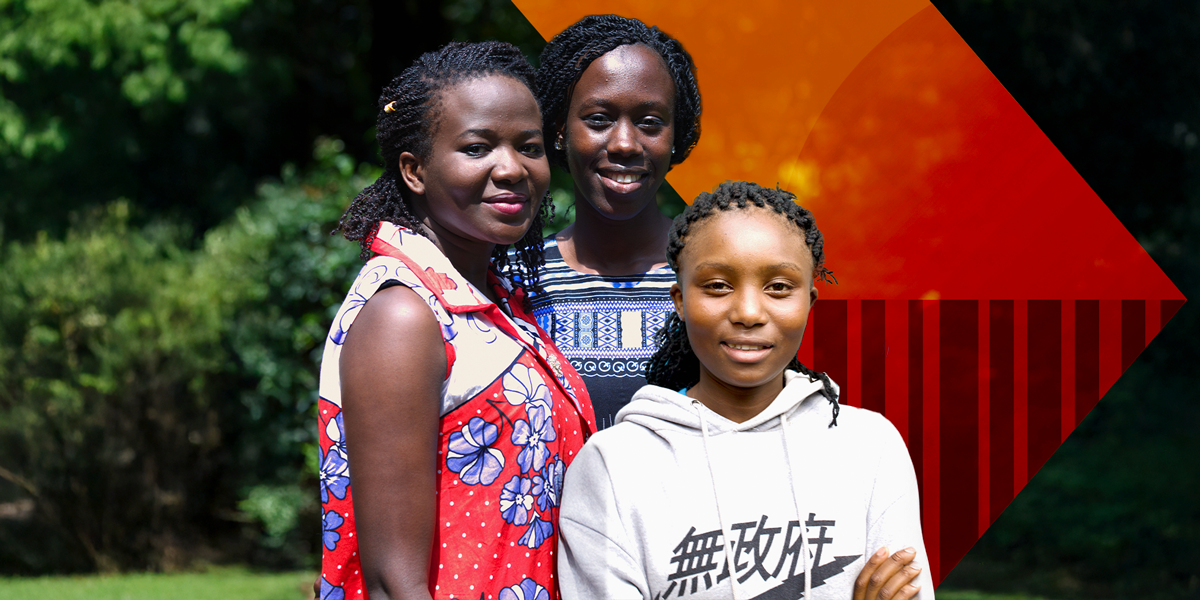By Kasey Martin
Once after a sacrificial meal at Shiloh, Hannah got up and went to pray. Eli the priest was sitting at his customary place beside the entrance of the Tabernacle. Hannah was in deep anguish, crying bitterly as she prayed to the Lord. And she made this vow: “O Lord of Heaven’s Armies, if you will look upon my sorrow and answer my prayer and give me a son, then I will give him back to you. He will be yours for his entire lifetime, and as a sign that he has been dedicated to the Lord, his hair will never be cut.”
When the child was weaned, Hannah took him to the Tabernacle in Shiloh. They brought along a three-year-old bull for the sacrifice and a basket of flour and some wine. After sacrificing the bull, they brought the boy to Eli. “Sir, do you remember me?” Hannah asked. “I am the very woman who stood here several years ago praying to the Lord. I asked the Lord to give me this boy, and he has granted my request. Now I am giving him to the Lord, and he will belong to the Lord his whole life.” And they worshiped the Lord there.” (1 Samuel 1:9–11, 24–28 NLT)
“This boy” — in the words of his mother, Hannah — is, in fact, the man we will come to know as Samuel. I have always been drawn to this man, but, before I tell you why exactly, here are some facts about him.
First of all, he was a “miracle child.” His mother, Hannah, had been barren for years, and that is why she prayed as she did in verses 9–11. As you read on, you see that Eli, who was Israel’s judge at the time, saw her praying but didn’t hear her (he just saw her lips moving), and he thought she was drunk. Once Hannah explained what was going on, Eli said, “May God grant the request you have asked of Him,” and God did.
_
“Not only was Samuel a miracle child who would one day go on to be the judge of Israel, he was also a Levite and would serve as a priest.”
_
Because of that fact, Hannah named her son Samuel, which means “heard by God.” Samuel is then dedicated to the Lord as a Nazarite (like Samson, another judge of Israel, had been earlier). Not only was Samuel a miracle child who would one day go on to be the judge of Israel, he was also a Levite and would serve as a priest. At the end of 1 Samuel 1, we see the boy Samuel being given back to the Lord. He is entrusted to the priest and judge, Eli, to be raised and trained in service to God.
As I mentioned, Samuel would one day go on to be a judge — he would, in fact, be Israel’s last judge — and one of his jobs through this role was to anoint the king of Israel. Samuel would actually anoint two kings of Israel — both Saul and David. Before we get to that moment in his life though, I want to share the formative moment in Samuel’s life that would induct him into yet another role God had for him: prophet. (Maybe that’s part of the reason I’m so drawn to Samuel. The guy wore a lot of different hats: priest, judge, prophet. He was a busy guy, and I can relate a bit as I currently juggle three jobs.)
Last and First
In chapter 3 of 1 Samuel we have the account of Samuel’s first experience with something in the capacity of the prophetic. According to Acts 3:24, Samuel is considered the first person with this capacity in the Old Testament — so last judge and first prophet. Now, to be fair, others prophesied before Samuel did — both Abraham and Moses, for example — but Samuel is the first of those individuals specifically referred to as “The Prophets” in the Old Testament. “The Prophets” are a group that include Isaiah, Jeremiah, Ezekiel, among others.
Right after receiving this prophet from the Lord, Samuel is questioned by Eli about what God had to say, and Samuel is hesitant to tell the man (who is essentially his adoptive father) about it. To his credit, Eli was wise enough to accept this difficult word from the Lord regarding the discipline coming in his household due to his sons’ behavior.
_
“Samuel had trusted in God to take care of Israel’s enemies, and God did.”
_
Not to brag on my boy too much, but Samuel also acted as a military leader for Israel. In 1 Samuel 7, we have the account of Israel gathering at Mizpah to consecrate themselves before the Lord, only to have the Philistines get wind of this gathering and decide to attack Israel — since they were all in one place. At the conclusion of this confrontation, Samuel sets up the “Stone of Help/Ebenezer” and states, “Up to this point the Lord has helped us” (v.12 NLT).
Those words carry special resonance following this, because while the Lord had continually helped His people, soon Israel would reject the Lord and choose to place their trust in a powerful human warrior, leader, and king. But Samuel had trusted in God to take care of Israel’s enemies, and God did. On the heels of this victory over the Philistines, though, the people begin grumbling and come out to ask for a king, so they might be like the other nations around them. Samuel takes this news from the people before the Lord.
Samuel was displeased with their request and went to the Lord for guidance. “Do everything they say to you,” the Lord replied, “for they are rejecting me, not you. They don’t want me to be their king any longer. Ever since I brought them from Egypt they have continually abandoned me and followed other gods. And now they are giving you the same treatment. Do as they ask, but solemnly warn them about the way a king will reign over them.” (1 Samuel 8:6–9 NLT)
Samuel does warn the people, but they reject his warnings and insist on a king. And so Samuel anoints Saul as directed by God. It’s at this point that my longtime draw to Samuel comes into play.
The Mentors
Samuel is a mentor. He is a coach, a guide, a sage for others. I’ve always been drawn to those types of people — the mentors — especially in literature. The term mentor even comes from an individual mentioned in “The Odyssey.” Mentor was the friend of Odysseus who was entrusted with the instruction of his son, Telemachus, while Odysseus was away.
_
“Like Obi-Wan, Samuel’s first protege, the first person he mentors winds up ‘going to the dark side.’”
_
When I was young, I loved books and movies about knights, dragons, and chivalry. I loved the books about King Arthur, the Disney film “The Sword in the Stone,” and even the Broadway musical “Camelot.” But my favorite character in all those stories wasn’t Arthur, Lancelot, or Galahad. It was Merlin, the mysterious older guy who taught in riddles and sounded a little crazy, but you knew you didn’t want to mess with him.
Of course, “Star Wars” was a huge influence on me when I was young as well, and I was drawn to the mentors there too. I loved Yoda — another guy who spoke in riddles but you didn’t want to mess with (“Judge me by my size, do you?”). As I got a bit older, though, it was Obi-Wan whom I came to appreciate most of all. And, like Obi-Wan, Samuel’s first protege, the first person he mentors winds up “going to the dark side.” The first person Samuel mentored was King Saul, and we all know that doesn’t end well. The first person Obi-Wan mentors is Anakin Skywalker, and he ends up becoming Darth Vader, so call me a nerd, but I saw some parallels there.
In high school, I began reading J.R.R. Tolkien’s “The Lord of the Rings” books. Who was my favorite character in those? Gandalf, of course, the wise old wizard and mentor. The introduction of the “Harry Potter” books came a bit later in my life, but, yes, I gravitated toward Dumbledore in those as well. … I think you may see a pattern here.
Samuel is the sage, the coach, the mentor, and this speaks to me both because I’ve repeatedly found myself playing that role in the lives of others, and I long to do that well. I love coaching, advising, instructing, and thinking with people about how to develop and improve.
Favorites and Faithfulness
We all have our favorites in many areas of our lives: favorite teams (for the record, I’m all Los Angeles teams from my youth: Dodgers, Lakers, Raiders, Kings, Bruins), athletes, authors, musicians, actors, theologians, philosophers, kids … OK, I’m just kidding about that last one. But have you ever thought about some of your favorites, be they artists or individuals in Scripture or literature? Think about who they are, and why who they are speaks to you specifically.
_
“Samuel was a God-sent prophet, priest, and judge, and he did his jobs well.”
_
God uses the lives of faithful servants to speak into our lives — people we read about, and sometimes individuals we are graced to get to know personally. Paul said that the believers in the church could follow his example as he follows the example of Jesus (1 Corinthians 11:1). Everything should point and lead to Jesus, but we can find help and connection points along the way in the lives of other faithful believers.
For me, Samuel is one of those. Whether it’s seeing the faithfulness of his mother, Hannah (who set him on this path), or witnessing how Eli taught him to simply respond to the voice of God, all that played out due to Samuel’s first act of faithfulness. Samuel was faithful leading Israel into battle — a battle that went well I might add — and then people still rejected him.
Samuel was a God-sent prophet, priest, and judge, and he did his jobs well. He was faithful to the call on his life, and, ultimately, that’s all we can be. Things did not always turn out the way he may have hoped and desired, but this wasn’t for his own lack of faithfulness. Samuel continued to abide near the stream of what he came to know about God. He heard God’s voice and responded as best he could although the abiding life he chose did not always produce the “happy” result he might have preferred.
I may have been drawn to Samuel initially due to his role as mentor, but I think I remain drawn to him because of his faithfulness to respond to the call of the Lord in diverse and difficult situations. Living the life of a follower of Jesus can be messy, and we are all messy people. As we continue to abide near the stream that is Jesus, even these messes can become beautiful — producing fruit that displays the presence and power of God.
+

Kasey Martin is the associate pastor of spiritual formation at The Lamb’s Fellowship in Lake Elsinore, California, after serving in a variety of ministry roles in Kentucky, Washington, Idaho and other areas of California. While attending Mt. San Jacinto College, he came to an intellectual conversion and placed his faith in Jesus. The heart conversion took a little bit longer, and God used a diagnosis of clinical depression to initiate a relationship based on love that would alter things entirely. After graduating from Mt. San Jacinto, he also earned degrees from Biola University and Asbury Theological Seminary.











